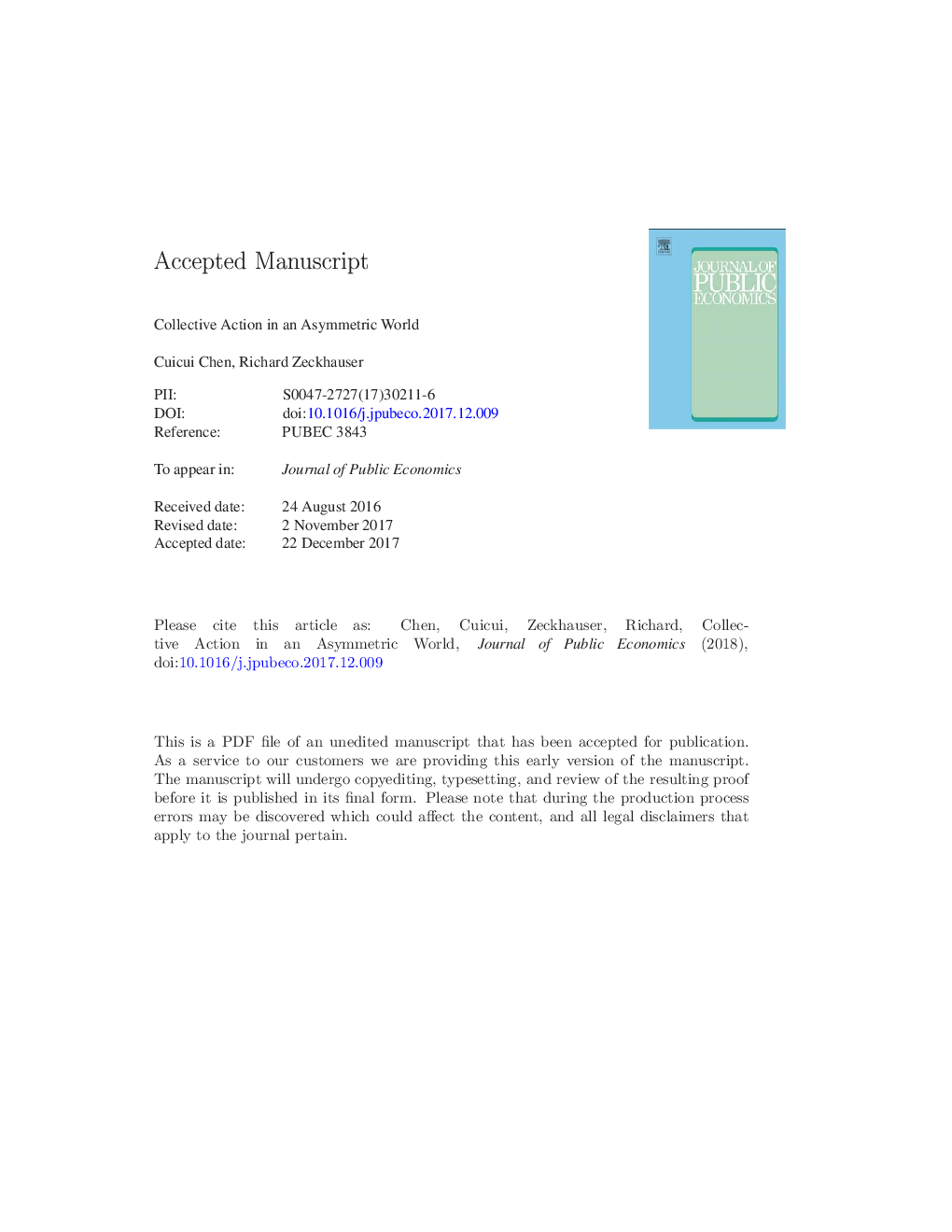| Article ID | Journal | Published Year | Pages | File Type |
|---|---|---|---|---|
| 7369594 | Journal of Public Economics | 2018 | 25 Pages |
Abstract
A central authority possessing tax and expenditure responsibilities can readily provide an efficient level of a public good. Absent a central authority, voluntary arrangements must replace coercive ones, and significant under-provision must be expected. International public goods are particularly challenging due to the substantial asymmetries among nations. Small-interest nations have strong incentives to ride cheaply. Our empirical results reveal cheap riding intentions in providing for climate change mitigation, a critical international public good. The evidence is provided by individual nations' Intended Nationally Determined Contributions voluntarily pledged for the Paris Climate Change Conference. We find that larger nations made much larger pledges in proportion to both their Gross National Incomes and their historical emissions. Implications for the Nordhaus Climate Club and carbon-tax proposals are discussed. To achieve Pareto optimality despite disparate cheap-riding incentives, we propose the Cheap-Riding Efficient equilibrium. That solution takes the Nash equilibrium as a base point, and then applies the principles of either the Nash Bargaining solution or the Lindahl equilibrium to proceed to the Pareto frontier.
Keywords
Related Topics
Social Sciences and Humanities
Economics, Econometrics and Finance
Economics and Econometrics
Authors
Cuicui Chen, Richard Zeckhauser,
